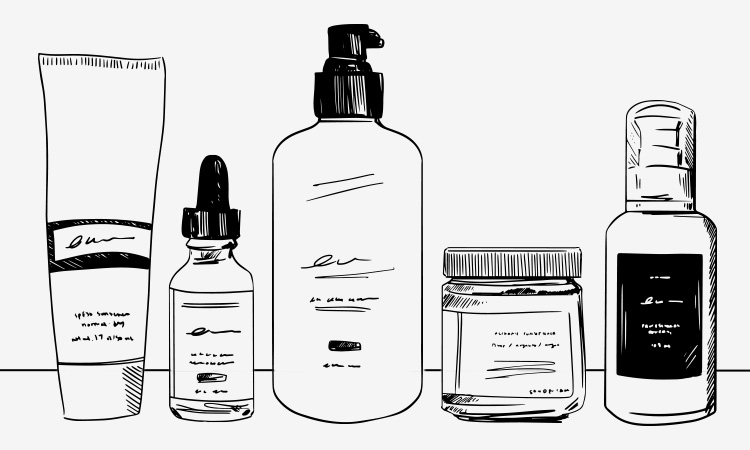Why Skincare Retailers Should Consider Buying in Bulk? – The Wholesale Advantage

In the ever-evolving world of beauty and wellness, skin care has emerged as a dominant force. The global skincare market, valued at $145.3 billion in 2020, is projected to reach $189.3 billion by 2025. This growth is fueled by increased awareness of skin health, a rise in disposable income, and a growing demand for natural and organic products.
Amidst this booming market, an important strategy for skincare retailers to consider is buying in bulk. Purchasing products in larger quantities offers a plethora of benefits, from cost savings and increased profit margins to effective inventory management and enhanced customer satisfaction. This blog post delves into these advantages, providing valuable insights for skincare retailers.
Cost Savings
One of the most immediate benefits of buying in bulk is the significant cost savings. Wholesalers typically offer discounted prices compared to individual purchases. This is because they can leverage economies of scale, buying large quantities directly from manufacturers at lower prices.
For instance, a retailer might buy a single unit of a skincare product for $10, but when buying in bulk, the price per unit might drop to $7. This represents a 30% cost saving, which can translate into substantial savings over time. According to a study by the National Retail Federation, retailers can save up to 35% on their purchasing costs by buying in bulk.
Increased Profit Margins

Beyond cost savings, buying in bulk can also increase profit margins for retailers. This is again due to the concept of economies of scale. When products are purchased at wholesale prices, retailers have the potential for higher markups.
For example, if a retailer buys a product for $7 and sells it for $20, the profit margin is $13. But if the same product is bought individually for $10, the profit margin drops to $10. This increased profit margin can significantly boost a retailer’s bottom line, contributing to the overall financial health of the business.
Inventory Management
Effective inventory management is crucial when it comes to wholesale skin care products. Buying in bulk allows for better control over stock levels, ensuring that retailers can promptly fulfill customer demands and minimize stockouts. This is particularly important for popular products that sell out quickly.
By maintaining adequate stock levels, retailers can avoid disappointing customers and losing sales. Moreover, buying in bulk can simplify inventory management processes, as retailers have to deal with fewer transactions and can better predict their inventory needs.
Product Variety

Purchasing skincare products in bulk also opens up opportunities for a broader range of offerings. Wholesalers often carry a diverse selection of products, allowing retailers to cater to different customer preferences.
This can enhance the shopping experience for customers, encouraging them to spend more time in the store and potentially purchase more products. Additionally, a wider range of products opens up opportunities for cross-selling and upselling, further boosting sales.
Brand Loyalty and Customer Satisfaction
Consistent availability of products can foster brand loyalty among customers. When customers know that their favorite products are always in stock, they are more likely to return to the same retailer. Buying in bulk ensures a steady supply of popular skincare products, helping to meet customer expectations and enhance satisfaction. According to a survey by the Harvard Business Review, 65% of consumers said that product availability is a key factor in their loyalty to a retailer.
Bulk Packaging and Customization
Buying in bulk allows retailers to take advantage of bulk packaging options. This can lead to cost savings, as bulk packaging is typically cheaper than individual packaging. Moreover, retailers can customize the packaging to reflect their brand identity, enhancing brand recognition and appeal. This can also provide an opportunity for retailers to differentiate themselves from competitors, offering unique packaging designs that stand out in the crowded skincare market.
Partnerships with Suppliers

Building strong relationships with suppliers is crucial for success in the skincare retail industry. Buying in bulk can lead to long-term partnerships and improved supplier relationships. This can result in preferential treatment, such as early access to new products, exclusive deals, and better payment terms. These benefits can further enhance a retailer’s competitive position and profitability.
Competitive Advantage
Buying in bulk can provide a significant competitive edge in the fiercely competitive skincare retail market. The substantial cost savings and increased profit margins that come with bulk purchasing allow for competitive pricing strategies. This pricing advantage enables retailers to attract a larger customer base, including price-sensitive consumers.
Moreover, the financial flexibility afforded by bulk buying enables retailers to offer unique promotions and discounts, further enhancing their appeal and differentiating them from competitors. These promotions can range from seasonal sales to loyalty rewards, all aimed at increasing customer retention and acquisition.
Product Quality and Authenticity
In the skincare industry, where product quality and authenticity directly impact consumer health and satisfaction, sourcing skincare products from reliable wholesalers is essential. Buying in bulk from trusted suppliers can provide much-needed assurance of the product’s quality. This assurance protects the retailer’s reputation, a critical asset in a market where trust is paramount.
It also helps to build and maintain customer trust, a key driver of repeat purchases and brand loyalty. Conversely, purchasing counterfeit or substandard products from unreliable sources can severely damage a retailer’s brand and customer relationships. Such purchases can lead to customer dissatisfaction, negative reviews, and even legal issues, all of which can have long-term detrimental effects on a retailer’s business.
Sustainability and Environmental Impact

In today’s world, where environmental consciousness is rapidly growing, buying skincare products in bulk also offers significant environmental benefits. Reduced packaging and transportation requirements associated with bulk purchases can lead to a smaller carbon footprint. This reduction in environmental impact contributes positively to sustainability efforts, aligning the retailer’s operations with global efforts to combat climate change.
This is increasingly important as consumers are becoming more environmentally conscious and prefer to support businesses that prioritize sustainability. Retailers that demonstrate a commitment to sustainability not only reduce their environmental impact but also enhance their brand image and appeal to a growing segment of eco-conscious consumers.
Conclusion
In conclusion, buying skincare products in bulk offers numerous advantages for skincare retailers. From cost savings and increased profit margins to effective inventory management and enhanced customer satisfaction, the benefits are manifold.
Therefore, skincare retailers should explore wholesale options for their inventory, building strong relationships with reliable suppliers and leveraging the power of bulk purchasing to drive their success. Whether you’re a small retailer just starting or a large retailer looking to optimize your operations, consider the wholesale advantage and unlock the potential of buying in bulk.

